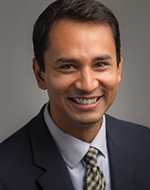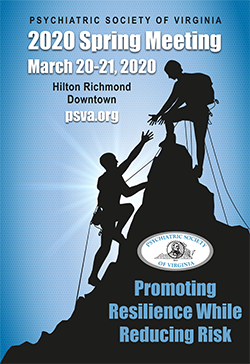Winter 2019 Issue |
|
Legislative Update
 |
Mark P. Hickman |
By James Pickral and Mark Hickman
Commonwealth Strategy Group
2019 General Assembly Elections
November’s General Assembly elections resulted in a historic shift after more than 25 years of Republican control of at least one chamber of the state legislature, leading to unified control of the executive and legislative branches of Virginia government under Democrats.
Virginia’s “off-off year” state legislative elections, when all 140 seats of the General Assembly are on the ballot, are usually sleepy, low-turnout affairs that benefit the incumbent party. But this year, hotly contested and competitive races throughout the Commonwealth drew often unprecedented fundraising, spending, media and national attention. With control of both chambers of the state legislature at stake, Republicans in the House of Delegates and Senate of Virginia defended their slim majorities from what Democrats hoped would be another “blue wave” similar to the 2017 and 2018 elections that began to reverse decades of Republican dominance in Virginia’s delegations.
 Democrats’ hopes were fulfilled. Turnout was unusually high, nearly matching statewide gubernatorial levels. In a somewhat surprising twist, the House of Delegates proved to be more favorable ground for Democrats than the Senate. As of this writing, Democrats appear to have gained six seats in the House of Delegates and two seats in the Senate. Although a few races are in recount territory, any changes won’t affect final control of the chambers.
Democrats’ hopes were fulfilled. Turnout was unusually high, nearly matching statewide gubernatorial levels. In a somewhat surprising twist, the House of Delegates proved to be more favorable ground for Democrats than the Senate. As of this writing, Democrats appear to have gained six seats in the House of Delegates and two seats in the Senate. Although a few races are in recount territory, any changes won’t affect final control of the chambers.
The House Democratic Caucus has elected current Minority Leader Eileen Filler-Corn as the Speaker-Designee. She will be the first woman and first Jewish woman to serve as Virginia’s Speaker of the House. Charniele Herring will serve as the new Majority Leader, and Rip Sullivan was chosen as new Caucus Chair. In the Senate, current Minority Leader Dick Saslaw (D) and Majority Leader Tommy Norment (R) are expected to trade roles. The new leadership will now need to select new committee chairmen and members.
2020 Outlook
With Democrats now poised to gain control of the General Assembly with unified government under Democratic Governor Ralph Northam, we can predict the policy areas that the new majority party will prioritize. Democrats will likely feel empowered to pursue a mandate for change. Healthcare will remain a top issue, as Virginia continues implementation of Medicaid expansion and its benefits, costs and work requirements. Healthcare access, coverage and cost will also be at the forefront. Other hot button issues likely to be tackled by the new majority include gun safety, abortion rights, LGBT protections, ratification of the Equal Rights Amendment, climate change, energy and pro-labor measures such as increasing the minimum wage and reconsidering Virginia’s right-to-work laws that currently restrict union membership and dues. Democratic Governor Ralph Northam will also feel newly empowered as he adjusts to unified government and his administration prepares to submit its full budget to the General Assembly.
As a result of the elections and recent remarks by the Governor pointing to the new Democratic majority, the current Republican leadership has canceled a previously scheduled meeting of the Crime Commission, which was studying gun control legislation, and a special session of the General Assembly to take up any legislative proposals. A Crime Commission report released on November 12, 2019 does not have any recommendations, but states that it seeks to offer technical assistance as legislators debate gun control measures in the next General Assembly session.
Deeds Commission
The General Assembly’s Joint Subcommittee to Study Mental Health Services in the Twenty-First Century (commonly known as the Deeds Commission after its chairman, Senator Creigh Deeds) met on September 23, 2019 and again on November 12, 2019. Meetings have focused on children’s mental health, including primary care, school-based services and the Virginia Mental Health Access Program designed to train pediatricians to better manage behavioral health issues in their office in order to extend the mental health workforce, provide on-call psychiatrists for real time consultations between pediatricians and the psychiatrist and to refer families to services.
The commission also received presentations from the Joint Legislative Audit and Review Commission (JLARC) on Community Service Boards (CSB) Funding and Implementation of the System Transformation Excellence and Performance (STEP-VA) program to reform the state’s behavioral health system. JLARC found that clear policy goals should be established before adopting a new CSB funding model and that Virginia could better consider other funding sources when allocating CSB funding. In regard to STEP-VA, JLARC found that the first step, which focuses on increasing same-day access, has been implemented with positive results, but goals have not been fully achieved. The second step, to provide primary care screenings and referrals, is to be implemented on time but could require significant changes that detract from future steps. JLARC found that sufficient oversight and coordination by DBHDS are necessary for effective implementation, and that effectively planning for and implementing remaining steps requires more time.
Lastly, the Deeds Commission has focused on the state hospital census crisis with presentations from the Department of Behavioral Health and Developmental Services, the Department of Medical Assistance Services, which administers Medicaid in Virginia and Secretary of Health and Human Resources, Dan Carey. Secretary Carey has led a work group mandated by legislation this year to examine the causes of the high census at the state hospitals with a focus on the evaluation process for those under Emergency Custody Order (ECO), individuals with medically complex conditions, individuals who are intoxicated and the most appropriate setting for treatment.
PSV participated in the work group, which produced sets of consensus recommendations and non-consensus recommendations. Consensus recommendations include supporting the continued build-out of community-based services and supports, addressing the behavioral health workforce, reducing trauma and improving the civil commitment process, providing additional resources to treat individuals with medically complex conditions and providing additional resources for individuals who are intoxicated or require detoxification. Non-consensus recommendations include extending the ECO period, improving the TDO evaluation process, enhancing data collection from the private hospitals and bed registry, clarifying the role of the state hospitals and modifying the bed of last resort legislation.
Legislators and other stakeholders have expressed concerns with the Administration’s decision to add additional beds to Catawba State Hospital at significant cost, rather than investing that funding into community-based services. Secretary Carey has responded that the immediate crisis and legal obligations demand that the state add more beds as soon as possible. Another point of contention among the work group members was focused around whether to extend the ECO period from 8 hours to 24 hours, which PSV and other stakeholders oppose.
Certificate of Public Need Reform (COPN)
The Administration-led COPN stakeholder mediation process has been underway this summer and fall. The Secretary of Health and Human Resources and the head of the mediation process put forth a recommendation that would create a favorable and expedited COPN process for imaging and Ambulatory Surgery Centers (ASCs) that includes charity care as well as Medicaid, Medicare and Tricare requirements. The Northam Administration has also indicated strong interest in reduced COPN burdens for services that can be provided in lower cost sites. They have a particular interest in incentivizing more private sector psychiatric beds and mental health services.
The hospital association has not been supportive of these proposals and has made no sign of willingness to reduce regulations on any meaningful service lines or regulated projects. We do not expect any consensus proposals to come out of the process.
Balance/Surprise Billing
The HHR Secretary was mandated by the budget bill to create a work group focused on finding a solution to surprise billing after the General Assembly failed to pass legislation dealing with emergency services. Unfortunately, the health plans have indicated that they are not willing to compromise and no consensus solution has been reached at this time.
Mental Health Parity
We are working with other mental and behavioral health stakeholders on introducing a mental health parity JLARC study bill this coming session. Details are forthcoming.
PSYCHMD PAC
With this year’s elections resulting in a new Democratic majority in the General Assembly and open seats producing new Republican faces as well, we are prepared to introduce PSV to newly elected legislators and continue to support returning legislators who are supportive of our profession and patients.
In addition to partisan dynamics, current political and social factors are combining in ways that have increasingly threatened physicians and our patients. In an effort to address healthcare access and cost, policymakers on both sides of the aisle are supporting measures that are of strong concern to physicians and our patients. PSV is working to protect patient safety and access to high-quality care from highly-trained physicians, but various interests throughout the state are demanding attention from lawmakers.
Our PAC is the profession’s voice in the political process. Contributing to the PAC is investing in your profession, patients, and high-quality health care from psychiatrists.
Every year the legislature considers bills that could potentially impact our profession and patients. Mental and behavioral health are big issues every year. At the same time, mid-level providers continue to act aggressively in ways that cause concern for physicians and patient safety. Our PAC enables us to help keep legislators in the General Assembly who support our profession and patients.
Visit the Legislation page at www.psva.org to contribute online or mail a check payable to PsychMD PAC with your full name and contact information to 118 N. 8th Street, Richmond, VA 23219.
Please contribute to PSYCHMD PAC and encourage your peers to join you.
Thank you to all our contributors this year!
Dr. Tony Graham |
Dr. Meredith Lee |
Dr. John Urbach |
Dr. Susan Waller |
Dr. Steve Cunningham |
Dr. Ed Goldenberg |
Dr. James Krag |
Dr. Leslie Kryzanowski |
Dr. Rebecca Lindsay |
Dr. Stephanie Peglow |
Dr. Adam Kaul |
Dr. Ajay Kuchibhatla |
Dr. Joe Mason |
Dr. David Markowitz |
Dr. Ashvin Patel |
Dr. Douglas Chessen |
Dr. Larry Conell |
Dr. Caroline Coster |
Dr. Helen Foster |
Dr. Kenneth Miller |
Dr. Karl Northwall |
Dr. John Shemo |
Dr. Raymond Alderfer |
Dr. Michael Bick |
Dr. Shaheen Ali |
YOUR NEWSLETTER IS NOW AVAILABLE ON YOUR SMARTPHONE AND TABLET!
JOIN PSV TODAY!
PLAN NOW!
PSV 2019
SPRING MEETING
March 20-21, 2020
Hilton Richmond Downtown
APA Find a Psychiatrist
Are you accepting new patients?
Opt into APA’s “Find A Psychiatrist” database. To view the functionality or opt-in,
CLICK HERE
FYI: A link for this option has been added to the PSV website. Select the “About” button and then “Find a Psychiatrist” from the drop down.





